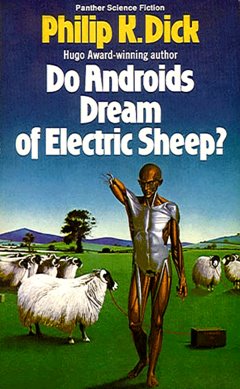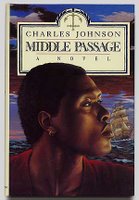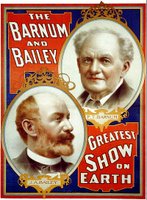The Value Chain for this industry was a closely controlled, proprietary vertically-integrated monopoly. All the components: production, distribution, and exhibition were under the control of the studios themselves. This allowed them to engage in several practices including block and blind booking before these were deemed illegal in regulatory decisions by the federal government.
 The introduction of Television had a powerful effect on the Business Model of the Movie Industry. Initially, television broadcasting was seen as a threat to the Movie Industry and its programming was a new competitor for the already declining attention of the film audience. However, by the early 1950s, the film studios recognized that the new technology was benefitting them. Past opinions aside, they did not hesitate to take advantage of a secondary market for their products, selling their extensive libraries for Television exhibition.
The introduction of Television had a powerful effect on the Business Model of the Movie Industry. Initially, television broadcasting was seen as a threat to the Movie Industry and its programming was a new competitor for the already declining attention of the film audience. However, by the early 1950s, the film studios recognized that the new technology was benefitting them. Past opinions aside, they did not hesitate to take advantage of a secondary market for their products, selling their extensive libraries for Television exhibition.The arrival of the Videocassette Recorder (VCR) created another lash of retaliation from the Movie Industry. The technology, both Betamax and Video Home System (VHS), was met by a vehement lawsuit which, although taken all the way to the Supreme Court, proved ineffective. The Betamax Case of 1984 essentially paved the road for the introduction of new distribution technologies that were to come. As with television, the existing industries quickly realized that rather than fighting the technology change, they could have been profitting from it. Again they had found themselves in a legal battle against an alternative, and lucrative, new distribution channel. Direct sales of films to VCR owners quickly gave way to video sales to Rental Stores, creating the two-tiered pricing system that is still utilized with the introduction of DVD technology. With a 40 to 60 percent split of the rental revenues, the Home Entertainment category is now the most profitable segment for the Motion Picture industry.
The internet was met with similar trepidation. As though struck with the same inexplicable amnesia that repeatedly appears in their plotlines, the Film Industry completely ignores their history and continues to view technological advancement as a threat. The big 6: Disney, Sony Pictures, Paramount Viacom, Fox News Corp, NBC Universal and Time Warner, joined together to form the Motion Picture Association of America (MPAA). In an organization that bears the very same traits that led to government antitrust intervention a century ago, the major Hollywood studios have again united to create closed standards that hinder competition. Together with a similar organization in the music industry, the Recording Industry Association of America (RIAA), the MPAA exerts a concerted effort to find and prosecute internet-based piracy and file sharing. In place of embracing these technological advancements and evolving complementary technologies to generate greater profits, like the billion dollar online film business being operated by early-adapter Blockbuster.com, the motion picture industry is again seeking legal insulation against the natural progress of their industry.
I see two possible scenarios for the Motion Picture Industry in the next 5 years. One, it will succeed as it has never before in controlling the distribution and exhibition of its products. This will undoubtedly follow a multi-year court hearing and perhaps several appeals that will be costly not to the media corporations, but to the consumers who are subpoenaed for testimony for or against the practices condemned. Afterwards, movie industry products like HD DVD and Blu-ray will have multiple layers of encryption to prevent copyright infringement. Movie theaters will be equipped with state-of-the-art biometric security to prevent movie-goers from “movie hopping” within the theater. Blockbuster will require a password, DNA sample, and a large cash deposit prior to releasing any media for rental. The internet will be laced with information-eating viruses that seek out unlicensed copyrighted materials on civilian computers, erasing it and signaling the Ministry of Truth to prevent any further crimethink. Meanwhile, independent filmmakers will capitalize on the benefits of unsolicited word-of-mouth product marketing facilitated by a peer-driven audience base of information sharers to create the future blockbuster films with zero dollar marketing budgets.
Or the second scenario, where the lessons of cooperation and compatibility push the Motion Picture Industry to adapt to a digitally enabled consumer society. They evolve their product offerings into a format that takes advantage of the rapid file sharing capabilities of the continually broadening internet. The MPAA will pioneer the technology of degradable digital, where all digital files have a shelf life before evaporating into zeroes and ones. This becomes the new standard format for movie viewing, people watching degradable digital on their cell phones, ipods, laptops, and home theaters. Independent filmmakers and Hollywood studios both make giant amounts of money from the now much larger consumer pie as we watch the multiplex theater go the way of the opera house, becoming a quaint experience where parents take children for a night of nostalgia and pay premium prices. A new market of Film Viewing Houses emerge after the pattern of IMAX theaters, targeting the Audio/Videophiles who are seeking the “Ultimate” in film-viewing experience. Formal Standard Setting becomes secondary to a spirit of innovation so that the “Best” technological advancements can come to the forefront, with the understanding that the whole industry will benefit from an increased interest facilitated by an improved customer experience. Movie-making will follow in the direction that television and internet are now going. The consumer, not the seller, determine the content and usage practices.
These ideas may be a little far-fetched, but they stem from lessons that history has taught in the areas of electric current, telecommunications, and long-distance travel. Businesses that will continue to succeed are businesses that focus on the benefits they are providing to customers and which are capable of adapting their own business model to follow the advancement of technology as it realigns itself with that overarching goal. Media and delivery channels will continue to change, but creating a relationship of trust with your customer base will assure financial success and maximize long-term shareholder value. --Shawn Butler



 So, “Alumnus” is singular masculine. For a girl, you should say "Alumna" pronounced "A-LUM-Nuh." "Alumni" is plural for a male or mixed group.
So, “Alumnus” is singular masculine. For a girl, you should say "Alumna" pronounced "A-LUM-Nuh." "Alumni" is plural for a male or mixed group.



 But that does not do it justice. What I bought is a
But that does not do it justice. What I bought is a 


















